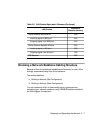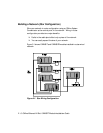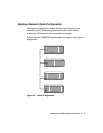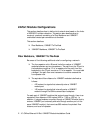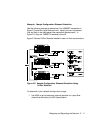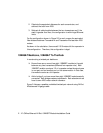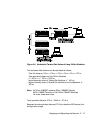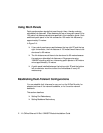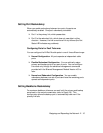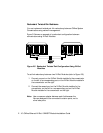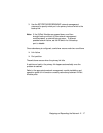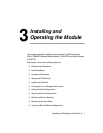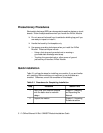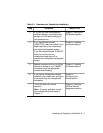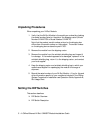Designing and Expanding the Network 2 - 15
Setting Port Redundancy
When you enable redundancy between two ports, the ports are
automatically enabled. Once port redundancy is enabled:
❑ Port 1 is the primary link, which passes data.
❑ Port 2 is the redundant link, which does not pass data in either
direction. However, the link is monitored for any failures (the Port
Status LED indicates any problems).
Configuring Ports for Fault Tolerance
You can configure the 24-Port Module ports in one of three different ways:
❑ Normal Configuration - All ports operate as independent cable
ports.
❑ Flexible Redundant Configuration - You can arbitrarily assign
primary and backup ports to any pair of ports. You can configure
this mode only through the advanced management commands
provided with the Ethernet Management Module Version v3.0 or
later.
❑ Normal and Redundant Configuration - You can enable
redundancy between one set of ports and have the remaining ports
operate as independent ports.
Setting Backbone Redundancy
For maximum backbone tolerance, connect both the primary and backup
ports back to the central concentrator (refer to Figure 2-5). This
configuration allows the backup port to automatically take over if the
primary link fails.



